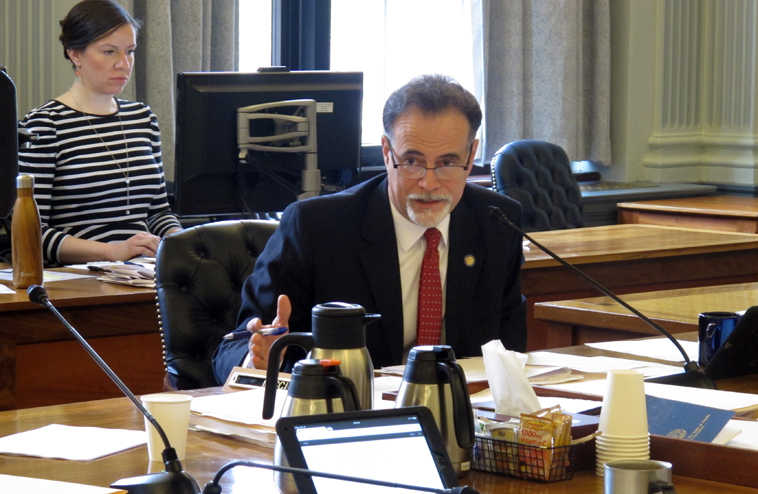JUNEAU — Legislative leaders planned to weigh their options for completing critical work on a state budget and other key issues as the scheduled end of the session loomed on Sunday.
Gov. Bill Walker has said he wants legislators to deliver a fiscal plan to confront an estimated $4 billion state budget deficit exacerbated by low oil prices. Legislators on Saturday had yet to finalize state spending plans or decisions on how to fund them.
Senate President Kevin Meyer said a lot will depend on how far apart lawmakers are late Sunday.
“If it looks like it’s just going to take a few more days to get the critical bills done then, yeah, we’d stay,” he said. But if it looks like the sides are “way far apart,” lawmakers would probably look at other options that could include adjourning and going into a special session in another location, he said.
It will be difficult to stay in the Capitol for more than a week or two beyond Sunday, he said. Renovation work is scheduled to begin Monday on the Capitol, and the construction schedule aims to have the Capitol effectively cleared out by May 2.
Voters approved a 90-day session, but the state Constitution allows lawmakers to meet in regular session for up to 121 days, with an option to extend for up to 10 days.
A key stumbling block on the House side has been how far to push changes to the state’s oil and gas tax-credit system. A House rewrite of Walker’s credits bill reached the floor, but Speaker Mike Chenault said he didn’t think it had the votes to pass. He sent it to the House Rules Committee to keep it alive while legislators tried to reach a compromise.
“I think all of us realize that we need to address the tax-credit issue before we can go much farther on some of the other revenue measures or even the budget bill,” Chenault said Thursday.
House Minority Leader Chris Tuck agreed and has called it the key piece of the puzzle.
The Senate has been hearing its own version of the credits bill while awaiting action from the House.
Meanwhile, there was a flurry of activity to advance other bills that have been in committee. The House and Senate each held floor sessions, and House and Senate negotiators met again on the state operating budget.
One of the bills moved from the Senate Finance Committee on Saturday addressed proposed restrictions on who can teach sex education in public schools.
Rather than requiring that that person be a licensed teacher under contract with the school, as had been proposed, the rewrite makes a provision to also allow for someone supervised by a licensed teacher to teach sex education if the person is approved by the school board and parents can review the person’s credentials.
Jessica Cler, a spokeswoman for Planned Parenthood Votes Northwest and Hawaii, said the rewrite would still drastically limit access to sex education and place extra burdens on school districts. It would make sex education the most burdensome subject to approve and teach at the district level, she said.

